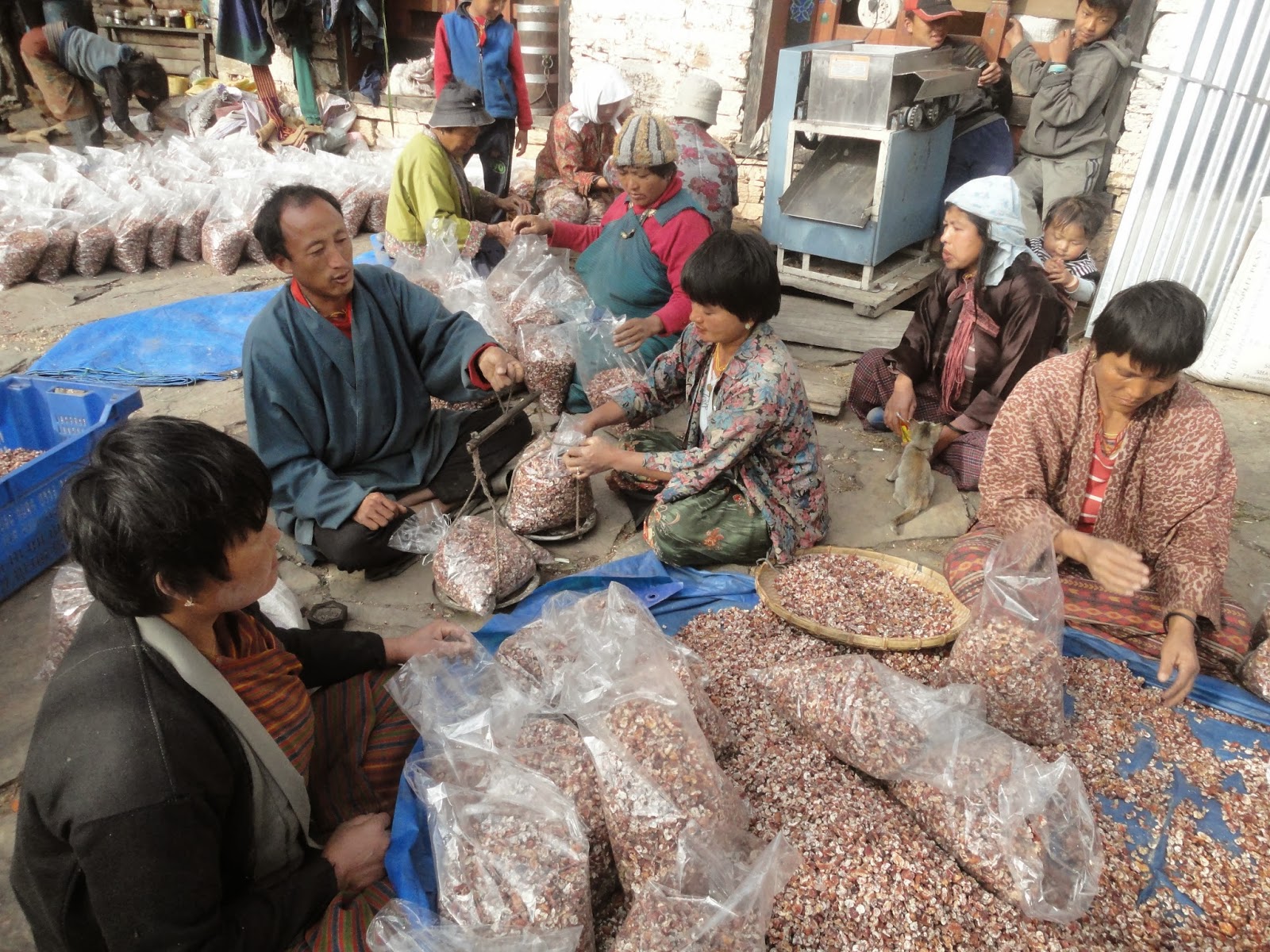An up-and-coming young
entrepreneur, Kinley Wangdi from Wangduephodrang has in fact broken new ground
in Thimphu with his most recent company called Green Vibes. Located to the left
of Zombala restaurant in Hongkong market, the Green Vibes is a juice bar set on
the ground floor of Kelwang building with simple but contemporary interior
looks.
If you are someone who is health conscious, Green Vibes is the place you are assured of mouth watering smoothie. His smoothies are blend together of fresh fruits and vegetables bought from local farmers. At all times the drinks are organic and sugar free with no other preservatives, and in that way making it more juicy and nourishing. A sip of these rich textured smoothies is a beautiful means to get fruits and vegetables in your diet.
Initially he started a home based delivery business as a prototype which later shaped into a beverage company with financial support from Loden Foundation. Today, he not only provides employment opportunities, but also promotes organic fruits and vegetables grown by our farmers. Beside indoor customers, he also carters his smoothies to UN house, DHI, RMA, and many more.
Down the line, he wishes to see the outspread of his smoothie outlets in other Districts too. The set of choices will also be twofold after launching of cold place juice and sugar free biscuits. Nevertheless, to fulfill his dream there need to be the whole time supply of raw materials which is one of his major business challenges. It’s not easy for him to locate organic fruits like water melon and pineapple even during the season. He has a plan to establish nurseries in his village (Dangchhu) as an answer to the existing challenge. Despite few obstacles, Green Vibes is on the rise and will get the better set in the business.
To me Green Vibes gave a first-rate service and hope that it will go on with the same spirit to fulfill expectation of every customer. And I also welcome Green Vibes as a board member of Jangsem Monday; a meatless Monday campaign. The Jangsemian wearing T-shirt, wristband or badge will also be offered certain price cut, so do visit Green Vibes.
If you are someone who is health conscious, Green Vibes is the place you are assured of mouth watering smoothie. His smoothies are blend together of fresh fruits and vegetables bought from local farmers. At all times the drinks are organic and sugar free with no other preservatives, and in that way making it more juicy and nourishing. A sip of these rich textured smoothies is a beautiful means to get fruits and vegetables in your diet.
Initially he started a home based delivery business as a prototype which later shaped into a beverage company with financial support from Loden Foundation. Today, he not only provides employment opportunities, but also promotes organic fruits and vegetables grown by our farmers. Beside indoor customers, he also carters his smoothies to UN house, DHI, RMA, and many more.
Down the line, he wishes to see the outspread of his smoothie outlets in other Districts too. The set of choices will also be twofold after launching of cold place juice and sugar free biscuits. Nevertheless, to fulfill his dream there need to be the whole time supply of raw materials which is one of his major business challenges. It’s not easy for him to locate organic fruits like water melon and pineapple even during the season. He has a plan to establish nurseries in his village (Dangchhu) as an answer to the existing challenge. Despite few obstacles, Green Vibes is on the rise and will get the better set in the business.
To me Green Vibes gave a first-rate service and hope that it will go on with the same spirit to fulfill expectation of every customer. And I also welcome Green Vibes as a board member of Jangsem Monday; a meatless Monday campaign. The Jangsemian wearing T-shirt, wristband or badge will also be offered certain price cut, so do visit Green Vibes.























